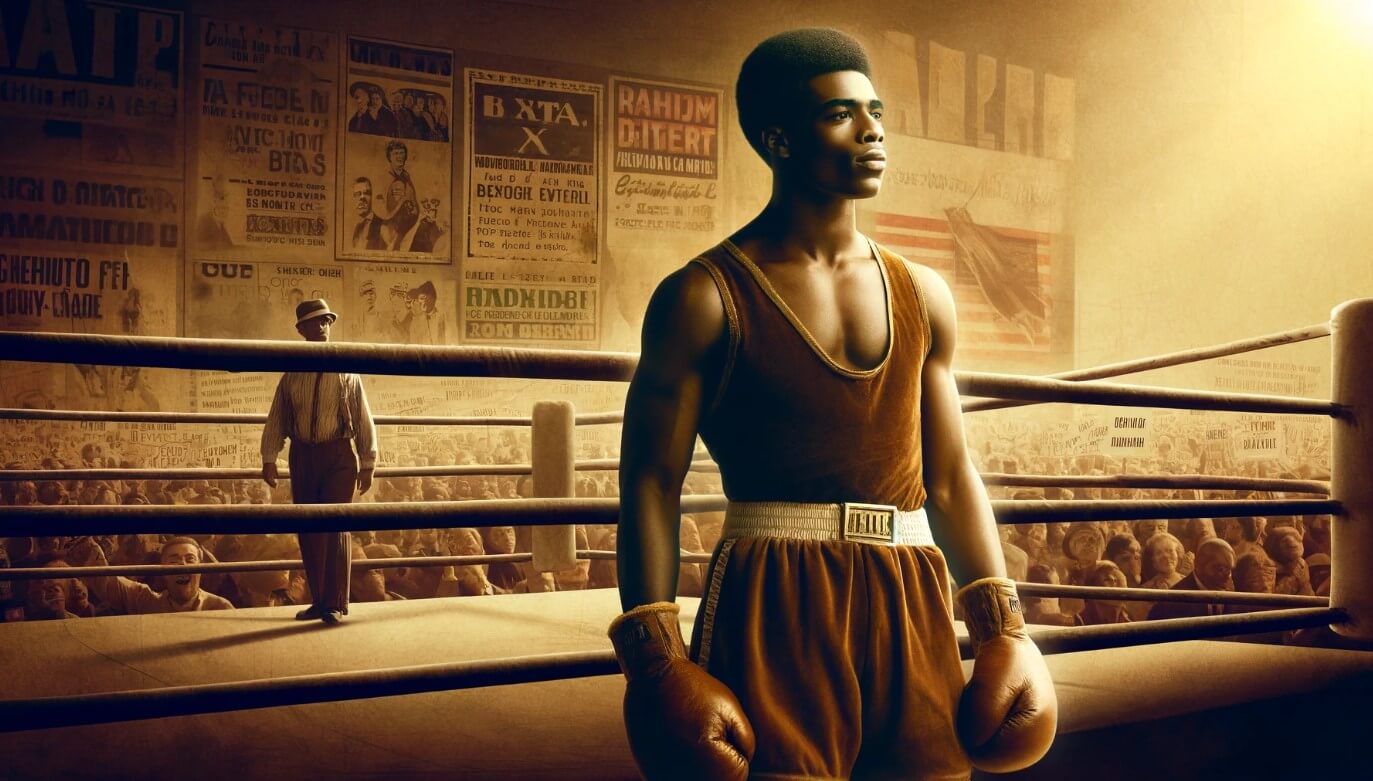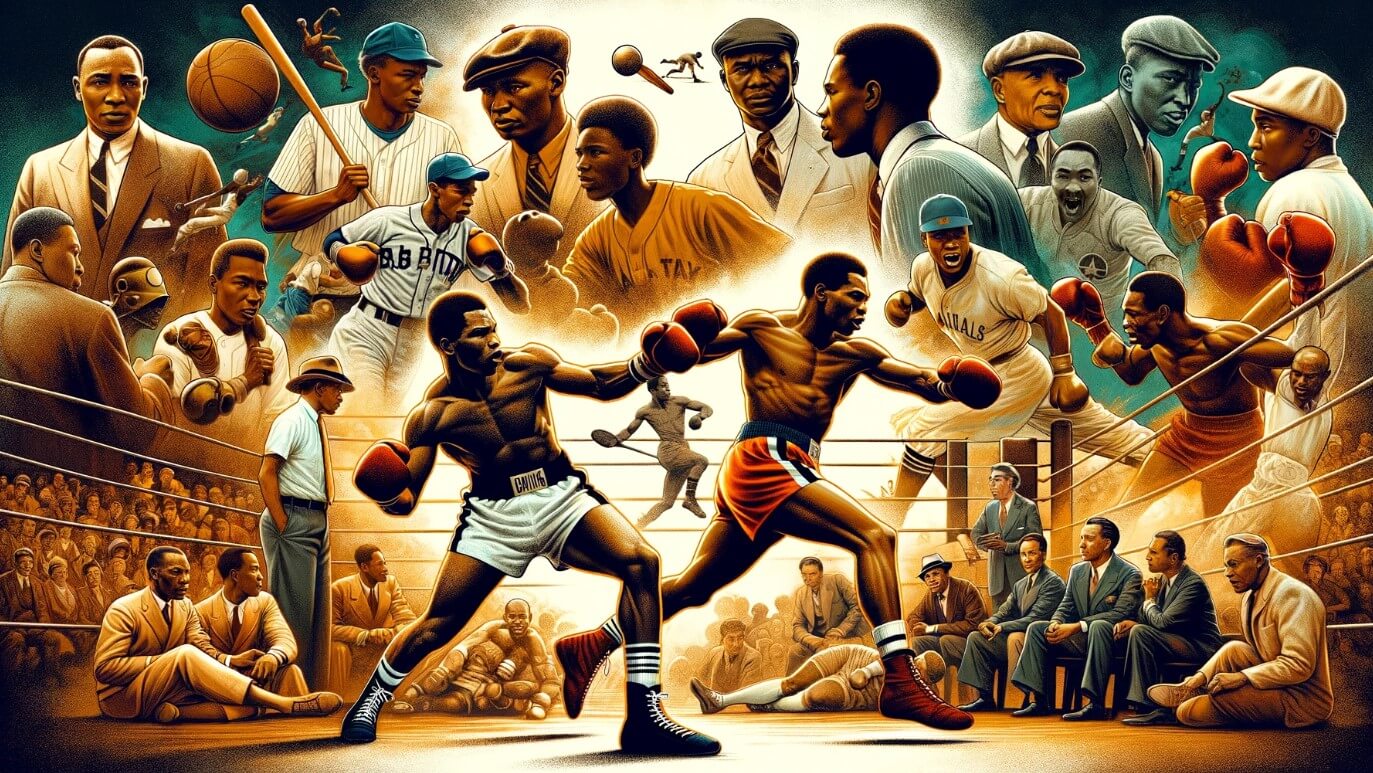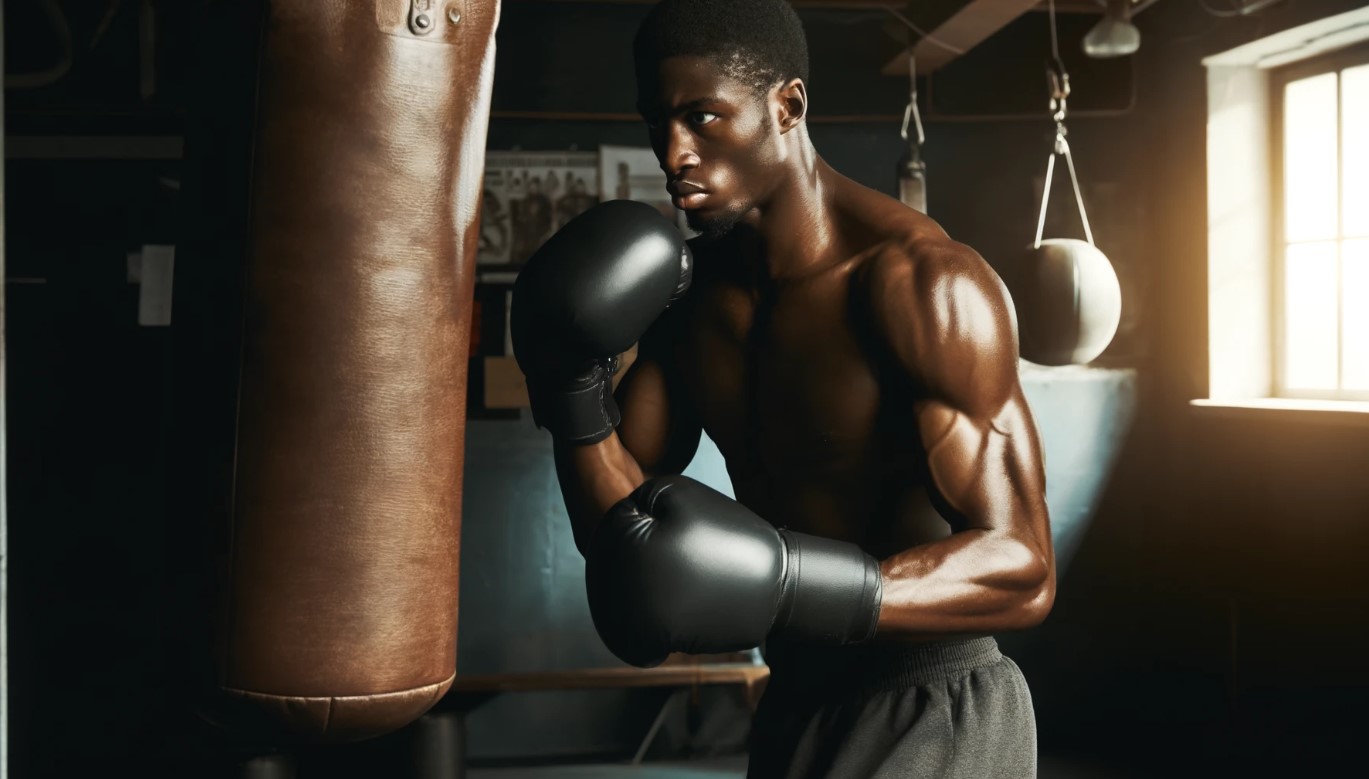When Muhammad Ali proclaimed, “I am the greatest,” it was more than just a boast about his skills in the boxing ring; it was a declaration of defiance against a society that often marginalized African Americans.
Boxing was crucial for African Americans as it provided a platform to challenge racial stereotypes and achieve social mobility. Boxers like Muhammad Ali used the sport to gain economic success and become symbols of resilience and defiance against racial oppression, profoundly influencing African American identity and civil rights.
Boxing, for many African Americans, has never been just a sport. It’s been a battle for respect, a showcase of courage, and a public platform for challenging racial injustice.
African American boxers have fought not only their opponents but also the oppressive stereotypes that have shadowed black athletes throughout history.
In this blog post, we will explore how boxing has served as a vehicle for social mobility, a platform for civil rights advocacy, and a significant element of cultural identity for African Americans. We will look at the enduring impact of this sport on the community and on the broader fight for equality and recognition in American society.
Redefining Black Manhood in the Ring
Boxing has played a critical role in challenging and changing stereotypes about African American men.
Historically, pervasive stereotypes depicted African American men as docile, subservient, and lacking intelligence. These harmful labels were not only unfair but also diminished their roles in society, affecting how they were treated and viewed by others.
In the boxing ring, however, African American boxers showcased qualities that countered these stereotypes. The sport became a platform where they could demonstrate courage, strength, athleticism, and discipline—traits that directly contradicted the negative labels imposed on them.
Boxing required more than just the ability to throw punches; it required a deep understanding of technique, the discipline to train hard, and the intelligence to outthink opponents.
Each match was an opportunity to prove that these athletes were not just physically strong but also mentally sharp and strategically savvy.
This redefinition was significant not just for the boxers themselves but for the entire African American community. It helped to break down racial stereotypes and opened the door to new opportunities and perceptions, paving the way for future generations.
Boxing and the Fight for Equality

Boxing has been more than just a sport for African Americans; it has been a significant battleground for racial equality.
The victories of African American boxers were not seen merely as personal or national triumphs but as powerful symbols of victory against racial oppression. Each win in the ring was a public blow against the barriers of segregation and discrimination that black athletes faced every day.
These boxers became heroes to their communities, representing hope and the possibility of a better future.
Their success was a beacon to others, proving that African Americans could excel and achieve greatness despite the severe restrictions placed on them by society. The impact of these athletes stretched far beyond the boxing rings, influencing the aspirations and ambitions of young African Americans across the country.
Moreover, the financial success achieved by African American boxers was groundbreaking. At a time when most African Americans were denied well-paying jobs and economic opportunities, successful boxers like Joe Louis and Sugar Ray Robinson made fortunes.
Their wealth was not just significant for them but also challenged the economic limitations traditionally placed on African Americans. It demonstrated that African Americans could build wealth and influence, paving the way for future generations to seek economic empowerment.
The legacy of these boxing champions continues to inspire. They were not just fighters in the ring; they were warriors for justice and equality, using their fame and success to fight against racial inequalities that plagued America.
Facing Racism in Boxing
Boxing, like many other sports in America, was deeply affected by racism and segregation.
African American boxers faced many challenges that their white counterparts rarely encountered. One major issue was segregation within the sport itself.
Black boxers often struggled to get fights for titles, and when they did, they faced unfair judging from officials who were influenced by racial biases. These unfair practices limited their opportunities and made it difficult for them to succeed.
Another significant aspect of racism in boxing was the concept of the “Great White Hope.” This term was used to describe white boxers who were promoted as champions with the specific aim of defeating black boxers.
The idea was to find a white boxer who could win against a black champion, thus appealing to racist attitudes among audiences.
A famous example of this was the fight between Jack Johnson, the first African American heavyweight champion, and Jim Jeffries, a former champion who came out of retirement just to fight Johnson. The match was heavily publicized as a battle to reclaim white supremacy in boxing.
Despite these obstacles, black boxers continued to excel and break barriers. Their victories were not just wins in the ring but also significant blows against the racism that plagued the sport.
Each win by an African American boxer was a testament to their skill, determination, and resilience. These victories were celebrated not only for their athletic achievement but also as crucial steps forward in the fight for racial equality in America.
Boxing and Black Culture
Boxing gyms have played a crucial role in African American communities, serving not just as places to train but as vital community centers. These gyms were more than just buildings; they were spaces where camaraderie and mentorship flourished.
Young people came to these gyms to learn boxing, but they stayed for the sense of community and the escape it provided from the challenges of their daily lives. Experienced boxers often became mentors to younger athletes, guiding them not only in their physical training but also in navigating life’s difficulties.
The influence of boxing on African American culture extends well beyond the confines of the sport. The language of boxing, rich with unique terms and phrases, has woven itself into the everyday vernacular of the community.
Terms from the boxing world like “heavy hands” or the ability to “dance around” problems are often used metaphorically to describe personal qualities or situations. This integration of boxing terminology into daily language reflects the deep cultural significance of the sport and the swagger of its champions.
Moreover, the assertive and confident attitudes of boxing champions have inspired the community. Words such as “champ,” “jab,” “knockout,” and “rope-a-dope” — the latter made popular by Muhammad Ali — have become common in everyday speech.
These terms symbolize dominance and the ability to overcome challenges, echoing the resilience and fighting spirit of the boxers who use them. This linguistic legacy is a testament to the profound impact that boxing has had on African American cultural identity, showcasing the sport’s role in shaping and expressing community values.
Boxing’s Enduring Impact

Boxing has had a profound and lasting impact on the opportunities available to African American athletes in all sports. It was one of the first sports where African Americans could gain national and international fame and challenge the racial barriers that existed in many areas of American life.
The success of African American boxers paved the way for athletes in other sports to break through racial barriers, inspiring figures like Jackie Robinson in baseball and Arthur Ashe in tennis. These athletes followed the path forged by boxers, using their platforms to challenge stereotypes and fight for equality.
Boxing has also played a significant role in shaping modern African American identity. The qualities of resilience, perseverance, and the pursuit of excellence, demonstrated by African American boxers, resonate deeply within the community.
These attributes reflect a broader cultural ethos that values strength in the face of adversity and the determination to succeed regardless of the obstacles. The legacy of African American boxers is not just their victories in the ring, but the enduring spirit they embody, which continues to inspire and shape the aspirations of the African American community today.

